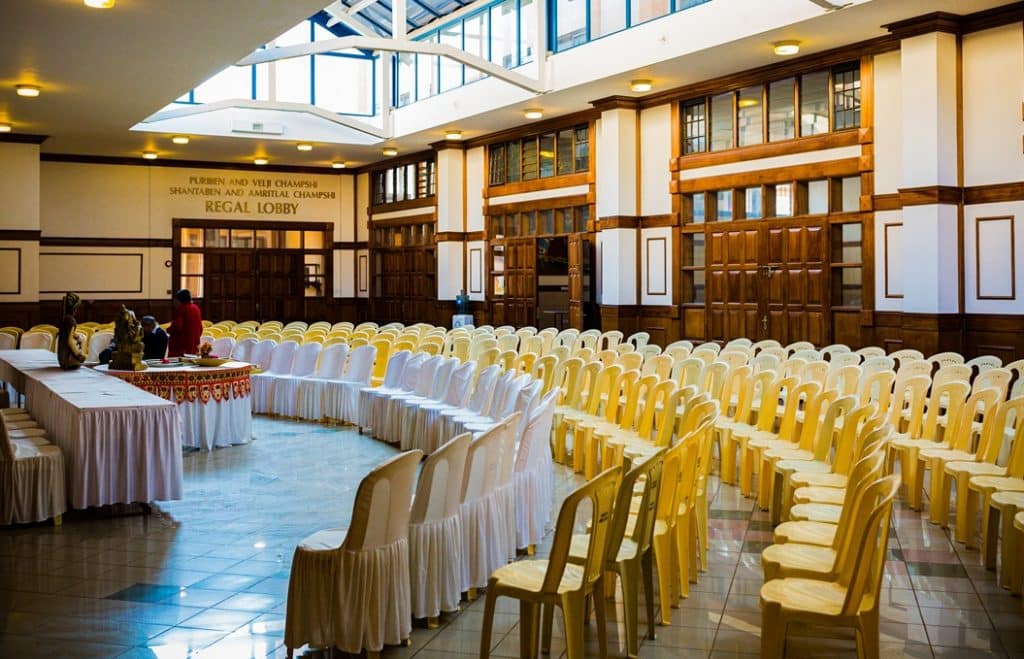
Organizing a successful corporate event can be a daunting task. From brainstorming ideas to execution, careful planning is key to creating an unforgettable experience for attendees. Whether you’re hosting a conference, a product launch, a company retreat, or a team-building event, this guide will provide you with the essential steps to ensure your corporate event runs smoothly.
How to plan a Corporate Event

1. Define Your Objectives
The first step in planning any corporate event is to clearly define your objectives. What are you hoping to achieve? Are you looking to promote a new product, foster team spirit, or perhaps encourage networking among peers? Setting specific, measurable goals will guide your planning process and help determine the event’s overall direction.
2. Create a Budget
Once your objectives are set, it’s time to create a budget. Consider all possible expenses, including venue rental, catering, entertainment, and marketing materials. Factor in potential sponsorship opportunities to offset costs. Having a detailed financial plan will help you monitor spending and make informed decisions throughout the planning process.
3. Set a Date and Time
Choosing the right date and time for your corporate event is essential for maximizing attendance and ensuring the event’s success. Here are several key considerations when setting your event date:
- Avoid Conflicts: Check for any major public holidays or local events that may coincide with your planned date. You want to ensure that your guests can attend without other obligations interfering.
- Consider Your Audience: Think about your target audience and their availability. For instance, if your event involves higher-level executives, consider avoiding busy work periods or industry events when they may be unavailable.
- Seasonal Factors: Depending on your location, the season can significantly impact attendance. For example, summer might be ideal for outdoor activities, while winter could be perfect for a cozy indoor gathering. Consider the weather how it may influence your event’s format and attendance.
- Day of the Week: Certain days can come with their own advantages or challenges. For example, Fridays might be favorable for relaxed, social events, while mid-week might be better for professional conferences or workshops where participants are more focused.
4. Organize Your Guest List
With objectives, budget, and date set, it’s time to curate your guest list. This step is critical as the chosen attendees will shape the overall dynamics and success of the event. Here are some effective strategies to ensure your guest list is both relevant and impactful:
- Define Your Target Audience: Based on the purpose of the event, identify who will benefit most from attending. This could include clients, prospects, employees, industry leaders, or partners. Knowing your audience will help tailor your messaging and activities.
- Create Categories: Segment your invite into categories based on their relationship to the event and organization. For example, you might categorize them into potential clients, current clients, employees, and industry leaders. This will facilitate personalized invitations and communications.
- Set a Capacity Limit: Ensure that your guest list aligns with the chosen venue’s capacity to avoid overcrowding. This will create a comfortable environment for networking and engagements. A good rule of thumb is to allow for about 80% of your venue’s maximum capacity for comfort.
- Utilize RSVP Tools: To effectively manage your guest list, consider using digital RSVP tools or platforms to simplify the invitation process.
- Personalize Invitations: Customizing your invitations will make your guests feel valued and increase the likelihood of their attendance. Include details specific to the recipient, such as previous interactions or their particular interests related to the event.
- Establish a Follow-Up System: After sending invitations, establish a system for following up with guests who haven’t responded. A polite reminder email or a phone call can help secure attendance and demonstrate your commitment to making the event a priority.
- Consider Diversity and Inclusion: It’s essential to create a guest list that reflects diverse perspectives and backgrounds. Ensure that your invitations represent a variety of demographics, industry, and viewpoints to foster productive discussions and connections.
- Plan for Guest Experience: Think about how the composition of your guest list will influence the overall event experience. For instance, if you’re hosting a panel discussion, ensure that your audience includes individuals who are engaged and knowledgeable about the topic at hand, as their input will enrich the dialogue.
5. Select the Right Venue

The choice of venue plays a pivotal role in the atmosphere and success of your corporate event. Consider the following factors when selecting the perfect location:
- Accessibility: Ensure the venue is easily accessible for all attendees. Consider its proximity to transportation options, parking availability, and whether it accommodates individuals with disabilities. A central location can enhance attendance rates and provide convenience for your guests.
- Capacity and Layout: Evaluate the capacity of the venue relative to your guest list. Confirm that it can comfortably accommodate your expected attendees based on different setup styles (i.e., theatre, banquet, or cocktail). An adaptable layout can also facilitate networking and interaction, which is often a key objective of corporate gatherings.
- Ambiance and Aesthetics: The venue’s decor, lighting, and ambiance should align with the theme and goals of your event.
- Amenities and Services: Look for venues that offer essential amenities like audiovisual equipment, Wi-Fi, catering services, and on-site support. Having these features available can ease the planning process and ensure a smooth execution on event day.
- Flexibility and Restrictions: Inquire about any limitations or restrictions the venue might have regarding decor, timing, or noise levels. A venue that is flexible will allow for better creativity and freedom when
- Flexibility and Restrictions: Inquire about any limitations or restrictions the venue might have regarding decor, timing, or noise levels. A venue that is flexible will allow for better creativity and freedom when planning your event. It’s essential to understand any rules that could affect your overall design and execution.
- Cost and Budget: The venue’s pricing should fit within your overall event budget. Always request a detailed quote that breaks down costs, including any hidden fees associated with services such as security, cleanup, or deposits. Consider potential costs for non-standard hours as well. Balancing quality and affordability is key to ensuring a successful event without breaking the bank.
- Reputation and Reviews: Research the venue’s reputation through reviews, testimonials, or word-of-mouth referrals. A venue’s past performance with other corporate events can give you insight into their reliability and quality of service. Visiting venue firsthand or attending a similar event can also help you gauge its suitability for your needs.
For more insight on selecting the ideal event venue, see our article on how to choose the perfect venue for your event.
6. Develop a Detailed Event Plan
Once the venue is confirmed, it’s time to create a comprehensive plan that outlines every aspect of your event. Here are essential components to include in your event plan:
- Timeline: Create a detailed timeline, including critical milestones to ensure everything stays on track. Start from the event’s inception and work through to post-event wrap-up. Include dates for confirming vendors, sending invitations, and following up with attendees.
- Budget Breakdown: Detail your financial allocations for each component of the event, such as venue rental, catering, entertainment, and materials. This will help keep your spending in check and allow you to identify areas where you may be able to cut costs if needed.
- Guest List and Invitations: Create a comprehensive guest list that aligns with the objective of your event. Decide how invitations will be sent, whether electronically or via traditional mail. Also, set a deadline for RSVPs to ensure you have an accurate headcount for planning.
- Catering Details: If your event includes food and beverages, determine the menu options based on guest preferences and dietary restrictions. Coordinate with your catering service to finalize license requirements for serving alcohol if applicable and arrange for any necessary equipment, such as tables and utensils.
- Technology Needs: Identify the technology requirements for your event, such as microphones, projectors, or video conferencing capabilities. Verify that your venue can accommodate these requests and work with AV professionals to test equipment prior to the event day.
- Event Day Logistics: Create a detailed logistics plan for the day of the event. Outline the schedule minute by minute, indicating when vendors will arrive, when guests will check in, when food will be served, and when speakers or entertainment will begin. Designate points of contact for each aspect of the event, ensuring everyone knows their roles and responsibilities.
- Signage and Branding: Plan for the signage and branding that will be present at the event. This includes banners, name tags, and digital displays that reflect your company’s branding. Ensuring consistent branding helps to reinforce your corporate identity and makes the event more professional.
- Emergency Plan: Given that unexpected situations may arise, it’s important to have an emergency plan in place. Consider potential issues such as inclement weather for outdoor events, technical difficulties, or last-minute vendor cancellations. Identify backup plans and communicate these contingencies to your event team.
- Post-Event Evaluation: After the event, allocate time for a post-event review. Collect feedback from participants through surveys to assess their experience, what worked well, and what could be improved. Create a debrief meeting with your planning team to discuss the successes and challenges
The Best Corporate Event Planning App
Did you know you can simplify your event planning process while ensuring every detail is flawlessly executed? Laparizone is your ultimate solution for effortlessly planning, managing, and elevating corporate events. Whether you’re organizing a large conference, a networking mixer, or a team-building retreat, Laparizone has everything you need. Visit laparizone.com today and and create and unforgetable experience for your audience!








